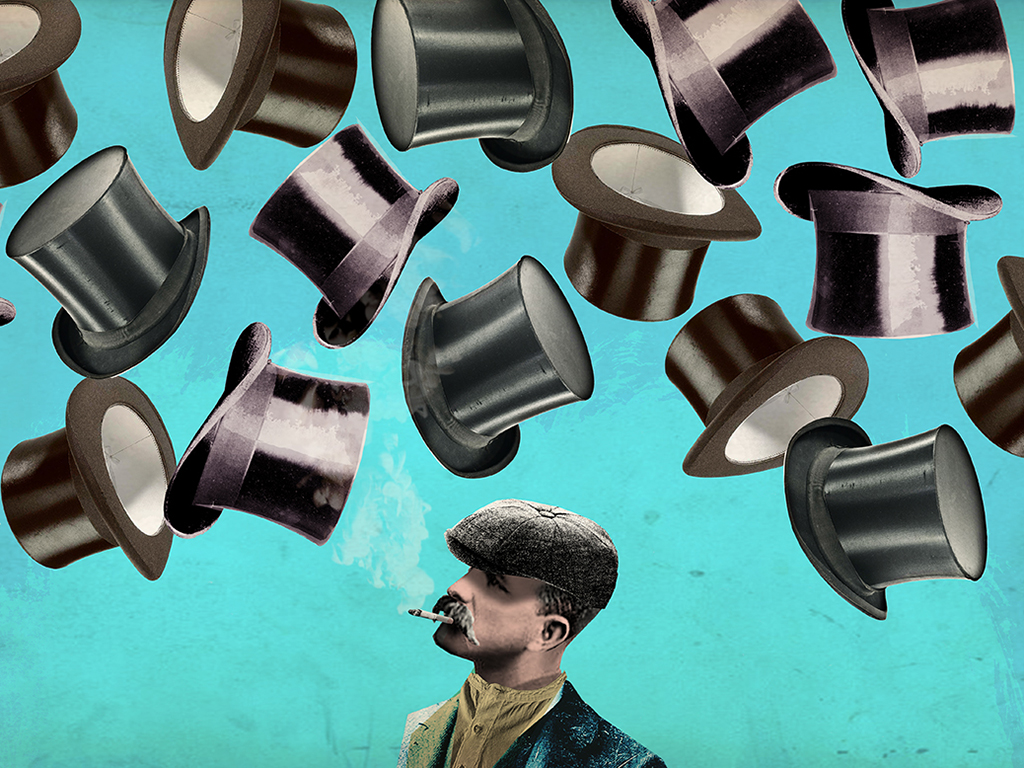
Consider, if you have the strength, two people. One is the prime minister of the United Kingdom of Great Britain and Northern Ireland, who has a net worth commonly estimated to be £730m. The other used to do the numbers bit on Countdown. The former is the richest person ever to govern the UK; the latter a media personality with a decent Twitter following.
Which of these two do you imagine best qualifies for the label “elite”?
The answer may surprise you – unless you’ve been reading the Sun this week, in which case it’ll merely annoy. That’s because Matthew Goodwin – a professor of politics and international relations at the University of Kent, a commissioner of the Social Mobility Commission and author of the new book Values, Voice, And Virtue: The New British Politics – used that very newspaper to define the “new elite”.
While the old elite was “defined by its extreme wealth, its inherited titles and its country estates”, the qualifications for entry to Britain’s new ruling class are very different. They attended elite and prestigious universities, including not just Oxbridge but the entire Russell Group (so don’t think you escape just because you went to Warwick). They have postcodes in big cities or university towns, “where they not only hoover up the economic gains of globalisation but tend to marry and hang out with other members of the elite graduate class who share the same backgrounds”. Then there’s the fact they have “professional, middle-class jobs in the knowledge, cultural and public sector institutions… which give them an immense amount of cultural power over the national conversation”.
(Another professor of politics, the University of Liverpool’s Stuart Wilks-Heeg, noted that there’s a fun game to be had here, turning this into a tick list and seeing how many apply to you. It’s only the fact that I can’t work out what “hoovering up the economic gains from globalisation” actually means that’s protecting me from a full house.)
All those qualifications, you may have noticed, apply just as much to the multi-millionaire Rishi Sunak as they do to Carol Vorderman, who’s been called out, best one can tell, for taking Gary Lineker’s side in the recent row with the BBC. So why isn’t the PM a part of the new elite? Ah, you see, he doesn’t meet the last of the criteria: “Most of all, they are defined by their very liberal if not radical ‘woke’ values which they are now imposing on the rest of the country through their tight control over the institutions.” Sunak, it’s fair to say, is not using his control over Britain’s political institutions to impose radical woke values on anyone. Vorderman is a different matter.
I have no desire to impugn the good Goodwin here, but I have to say I’m not entirely convinced by this argument. People have always socialised and married within their own class. A postcode in a big city or university town may, these days, correlate with one’s politics; but since it tells you nothing about whether someone owns a £2m house or rents a room in a flat with six other people, it gives you no indication as to their wealth or power – and surely those things matter more than mere geography? (I, like a number of others, put this question to Goodwin on Twitter. He was too busy to answer, but suggested I read his book, so while I am none the wiser I can honestly say I’m in awe of his sales technique.)
It’s also not clear that this new elite is actually in any way new: it sounds suspiciously like the liberal elite that right-wing commentators have been banging on about for as long as anyone can remember. Only a few weeks ago, the pages of the Daily Mail found Peter Hitchens asking: “Is the liberal elite’s odd obsession with the Right helping to create a British Stasi?” which is an excellent question. Back in September, Andrew Neil used his column in the same paper a few days before the Queen’s funeral to argue that, “This week proved Britain ISN’T the declining power the liberal elite portrays us as”. This take may or may not be fair, but it was stunningly well-timed, coming as it did precisely seven days before Kwasi Kwarteng stood up to deliver his mini-Budget.
This, of course, is the biggest problem with the “new elite”. The decision to define a new ruling class not by power but by what they think is a sort of gerrymandering: like the use of “Red Wall” to refer exclusively to the older, socially conservative voters who have made those places marginal, and not their more precarious and left-wing grandchildren, it’s a question that contains its own answer. It reminds me of the baffling period in British politics where anyone who’d voted Remain was metropolitan elite, regardless of where they lived or the fact they made up 48 per cent of the electorate. An elite defined by opinion rather than power is no elite at all.
There have always been panics on the right about the cultural power exerted by bourgeois institutions such as universities, which have the gall to hold liberal-left views even when the right are in power. But that does not change the fact that the right are in power. On the definitions set out in the Sun, a BBC editorial assistant who has no assets but is in favour of immigration is elite; a banker and Cabinet minister who is against it would not. This is self-evidently ridiculous.
Being welcome at certain dinner parties or in certain Twitter chats may count as a form of cultural capital, I suppose – but that doesn’t make you a ruling class. For that, you still need to look to the wealthy, right-wing politicians who really do hold all the power.
[See also: The Right’s war on the government’s “green day”]






